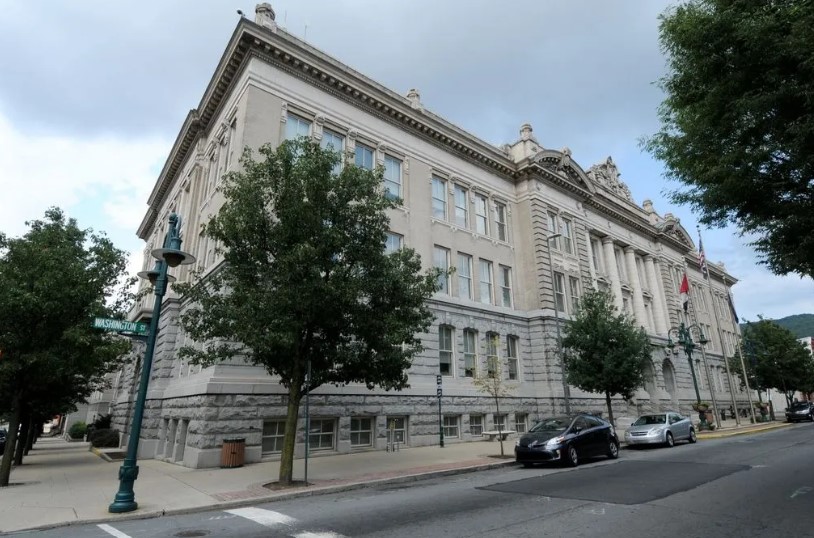Reading City Council has passed legislation that decriminalizes possession of small amounts of marijuana.
Council voted 5-2 at its regular meeting Monday to amend the city code to impose civil fines, rather than criminal charges, for possession of 30 grams or less of marijuana.
Council President Donna Reed and Councilor O. Christopher Miller cast the dissenting votes.
Miller and Reed said the ordinance would need some refinements before they could support it.
Miller, who attended the meeting virtually, also said he was not sure enough time was provided for public comment.
More than a dozen residents spoke during the public comment portion of the meeting, some supporting the ordinance and others opposing it.
“Based on the people that have spoken tonight, both for and against, this is obviously a passionate issue to many people,” Miller said. “I think the fact that, as elected officials, we represent all people, not just the people we agree with, everybody needs to have a chance to speak their voice.”
Several elected officials from Pennsylvania municipalities that have passed similar legislation also spoke during the comment period in support of decriminalization.
DA opposition
Earlier Monday at council’s committee of the whole meeting, council heard from Berks County District Attorney John Adams.
Adams has opposed the measure, citing legal, operational and policy concerns.
The ordinance, he said, would undercut a marijuana diversion program already in place countywide that provides education through the Council on Chemical Abuse.
“My office began that program and in essence it is a sort of decriminalization of marijuana,” Adams said. “Once someone completes the program, the charges are dismissed and their record is expunged.”
Before passing the ordinance, council voted to mandate participation in the program for first-time offenders. Council also set the fine for a first offense at $100, $50 of which would cover the program fee, which goes to COCA. The fine for second and subsequent offenses was set at $150.
Adams also said the same standard should be used for marijuana laws in the county and each jurisdiction. Having different laws in various municipalities creates confusion, he said.
Further, he noted, the ordinance will have no effect on keeping county and state policing agencies from imposing criminal charges on those in possession of any amount of marijuana within city limits
“I don’t believe that the city should be passing a law that supersedes state law,” he said.
State measures
Things would change should the state Legislature pass a measure currently under debate that would legalize adult-use cannabis in Pennsylvania.
Reed said she received an email from state Sen. Judy Schwank providing an update on pending marijuana legislation. According to the update, five pending bills address decriminalization and legalization of marijuana, Reed said, noting these are at various stages in different committees throughout the House and Senate.
Some of the pending state bills mirror the city ordinance, she said.
Reading’s ordinance does not legalize or promote marijuana use, council members stressed.
Wrong message
Yvonne Stroman, community program specialist for the Berks County Council on Chemical Abuse, also voiced her concerns.
“I do not think the average citizen truly understands the detriment and heartbreak of addiction,” she said. “The potency of marijuana today has a greater potential to be addictive.”
The stakes are higher for young people, she said, due to the brain not being fully developed until a person reaches their mid-20s.
By decriminalizing marijuana, Stroman said, council is sending a message that marijuana is safe to use without consequences.
“And that is not true,” she said. “We should never try to resolve complicated issues with simple solutions.”
Cost savings
Council also heard from Chris Goldstein of the National Organization for the Reform of Marijuana Laws and Joe Welsh of the Lehigh Valley Justice Institute, who spoke in favor of decriminalization.
Goldstein said 91 cities, boroughs and towns in the state have decriminalization ordinances, including Philadelphia, Harrisburg and Pittsburgh.
“Every one of the largest cities, except for Reading, has already done this,” he said. “The most effective policy is in Philadelphia where it reduced marijuana arrests by 90%.”
That city went from arresting 5,000 adults for cannabis possession per year to 600 people, he said.
“The two (Philadelphia) district attorneys now tout the success of this program and the fact that it saves Philadelphia millions of dollars per year,” he said.
Reading’s ordinance could potentially save the city and this county millions of dollars, he said.

